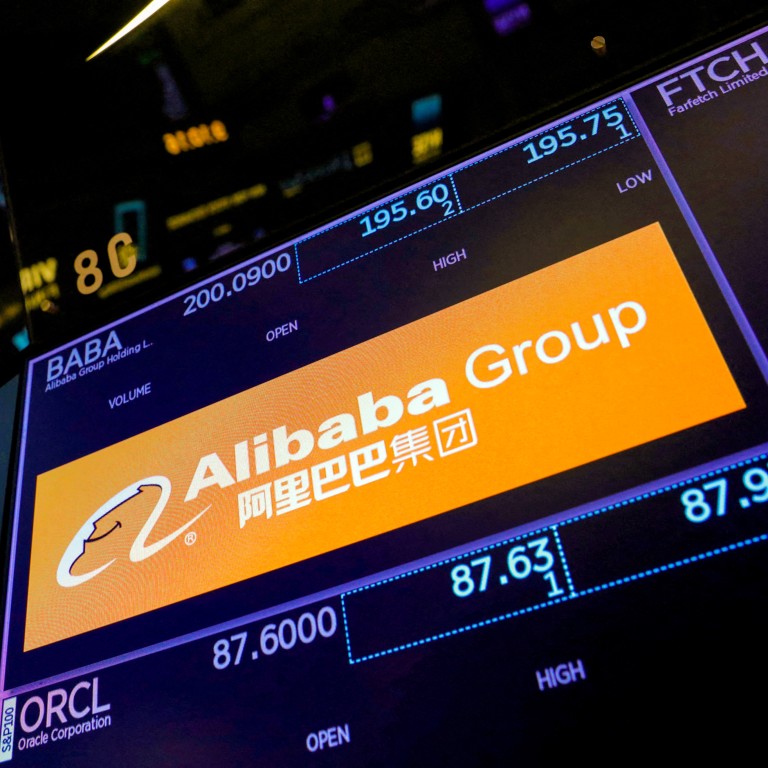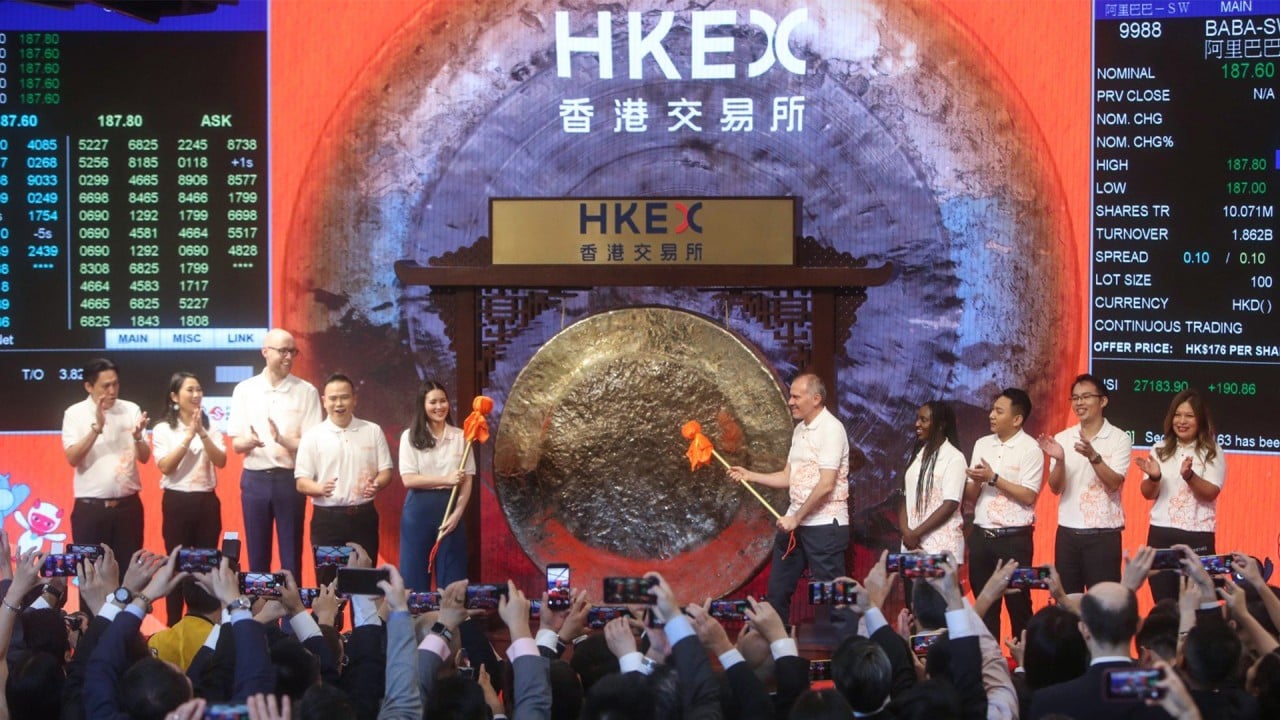
Premium on Alibaba’s Hong Kong stock over US shares widens to seven times historical average after primary listing application
- The spread between Alibaba’s Hong Kong stock and ADSs reached as wide as US$5.51 last week, compared with the historical average of about US$0.80
- A primary listing in Hong Kong will reduce the risk for ADS holders in case the company is booted out from the US and allow it to join the Stock Connect programme
The spread between Alibaba’s Hong Kong stock and ADSs reached US$5.51 on Friday, compared with the average of about US$0.80 since the Chinese e-commerce giant began trading in Hong Kong in November 2019, according to Bloomberg data. The spread has risen to US$1.364 since it applied for a change of listing status on July 26.
Alibaba’s New York-listed shares are fungible with the Hong Kong stock at a ratio of 1:8, and vice versa at the ratio of 8:1. The fungibility ratio of 8:1 is close to the current Hong Kong dollar exchange rate of 7.85 per US dollar. So that ties the stocks in a 8:1 ratio, where one gain will be reflected in the other, and one decline drags the other down.
Here’s how to convert Alibaba’s shares in New York, Hong Kong
The company was added to a tentative delisting list by US securities regulators last week for failing to let American auditors access its audit papers, a long-standing issue between China and the US.
“For those investors with US-based exposure and intent on having Alibaba in their portfolio, it makes sense to switch to Hong Kong,” said Stephen Innes, a managing partner with SPI Asset Management. “And yes, the spread will widen due to forced sales by institutional risk management control authorities.”
Alibaba is the owner of the South China Morning Post.
A primary listing in Hong Kong will offer a leeway for Alibaba’s US-based investors, who hold about 40 per cent of its issued securities, and potentially boost liquidity of its shares in the city. The daily turnover in New York averaged US$3.2 billion in the first six months of the year, compared with US$700 million in Hong Kong, according to the company.
Many US-listed Chinese firms not qualified for Hong Kong listing
Citic Securities, China’s biggest publicly traded brokerage, expects more companies to switch to a primary listing in Hong Kong, potentially adding HK$1.4 trillion (US$178.4 billion) in market cap and boosting the daily turnover by about 4 per cent.
One outcome of switching to a primary listing for Alibaba is that it will join a waiting list of companies to be added to the Stock Connect scheme, which typically spurs more liquidity due to participation by mainland traders.

The brokerage predicts that Alibaba will be eligible for trading through the programme by next June at the latest.
The shift in Alibaba’s listing status could be a boon for investors as it will allow them to navigate the delisting risk and ride on the stock’s increased liquidity, said Redmond Wong, a Hong Kong-based strategist at Saxo Markets.
“Theoretically speaking, US investors will have a plan to convert the ADSs to stock trading in Hong Kong, and that remains their primary choice,” he said. “On the other hand, that’ll also accelerate the pace of Alibaba’s stock being added to the southbound investment channel of the Stock Connect.”


